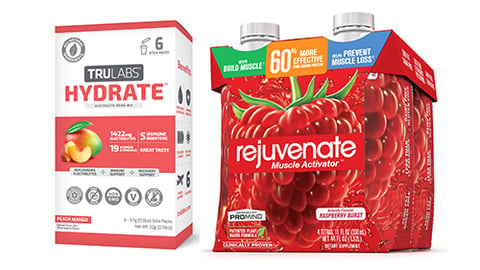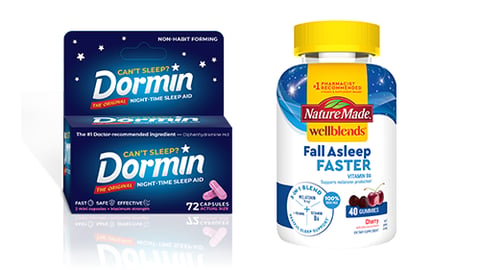Cold Wars
The average U.S. adult suffers through an average of two to three colds annually, according to the Centers for Disease Control and Prevention, while children tend to endure even more. Plus, 25.7% of adults and 18.9% of children have a seasonal allergy, and millions are sickened by the flu each year.
It’s no wonder that products promising to tame the symptoms of these conditions are in high demand. But these days, many consumers are finding it difficult to choose the right product.
Overwhelmed by Options
One significant challenge for shoppers is the abundance of options, said Jessica Greenwood, marketing director for the Consumer Health division of Whippany, N.J.-based Bayer.
[Related: Trending Topics—Cough and Cold]
“With so many products on shelves, it’s hard to make choices,” she stressed. Phallon Obomanu, vice president, drug and specialty for Skillman, N.J.-headquartered Kenvue Inc., agreed, saying health care providers—including pharmacists—play a significant role in over-the-counter product recommendations.
Open to Alternatives
Traditional over-the-counter cough and cold remedies are seeing some real competition from homeopathy, a centuries-old alternative medical practice. According to the Food and Drug Administration, homeopathic remedies are based, in part, on the principle that “like cures like”—essentially, “a substance that causes symptoms in a healthy person can be used in diluted form to treat symptoms and illnesses.”
A December 2023 report from Business Market Insights, “North America Homeopathy Market Forecast to 2030,” forecasts a compound annual growth rate of 15.1% for the North American homeopathic market be-
tween 2022 and 2030, predicting it will reach more than $5 billion by 2030.
“The shift towards homeopathic medicines reflects a broader consumer desire for holistic and individualized health solutions,” said MaryEllen Tefft, vice president of sales, FDM, for Boiron USA, Newtown Square, Pa. “The pandemic certainly accelerated this trend, as more people sought self-care options at home and became more conscious of the ingredients in their products.”
Boiron recently increased its presence in the homeopathic cough and cold remedies space with the introduction of ThroatCalm Spray. The product relieves occasional sore throat discomfort without the numbing effects associated with traditional throat sprays and lozenges, Tefft noted.
“This plant-powered formula features a mint-like herbal flavor and combines the calming properties of echinacea with the soothing and healing benefits of plantago major,” she said.
“A key priority for Kenvue is not only educating the health care providers making these recommendations, but also the consumer,” Obomanu said. “They need to know what to look for in an OTC product and understand what is needed to treat their symptoms at home with product(s) and ingredients(s) that are right for them.”
That said, the cough and cold aisle still might benefit from a more curated selection. James Bragman, DOFACP—a board- certified member of the American Board of Internal, Geriatric and Sports Medicine and a medical advisor to Bloomfield Hills, Mich.-based CofixRX LLC—notes that many brands now market several variations of essentially the same product, with the same active ingredients, which can be confusing to consumers.
“Drugstores should focus on choosing fewer variations of these redundant products of the same brand, with proven efficacy, for their cough/cold set,” Bragman said, “and make special considerations for products that will actually provide benefits towards better health versus masking symptoms temporarily or, worse, providing no benefit at all.”
[Related: HRG's Five Notable Products from October 2024]
In 2023, a Food and Drug Administration advisory committee recommended the removal of oral phenylephrine from FDA’s approved list of ingredients for cold and cough medicines, noted Sameer Rabbani, vice president, marketing, respiratory for Haleon, with U.S. headquarters in Warren, N.J.
“PE is the only oral nonprescription medicine for nasal congestion available without purchase restrictions,” Rabbani pointed out. “As we await FDA’s final decision on oral PE, the future of the category remains unknown with potential for great disruption.”
Room for Innovation
Even if they are working toward a more curated cough and cold product assortment, drugstores will likely want to consider adding some new products that are in line with current consumer needs.
“Right now, there is a big shift toward cough and cold medicine that can tackle multiple symptoms in one go,” Greenwood said. “There is also a growing interest in new formats, from liquids to chewable tablets, especially those with sensorial or practical benefits like the ability to take it on the go.”
Bayer’s new Alka-Selzer Plus cold & flu fizzy chews deliver on these consumer demands, Greenwood noted. The chewable, portable tablets provide fast multi-symptom relief in a fizzy format that requires no water, per the brand.
Haleon also is catering to on-the-go needs with the recent release of Robitussin and Theraflu soft chews. Meanwhile, Kenvue’s latest adult products in the category, Tylenol Extra Strength Severe Cough and Sore Throat, aim to give on-trend multi-symptom relief in a consumer-friendly liquid format.
“As the category and consumer needs change, we plan to include more Tylenol products in the cold and flu assortment in the coming months as well,” Obomanu said.”




